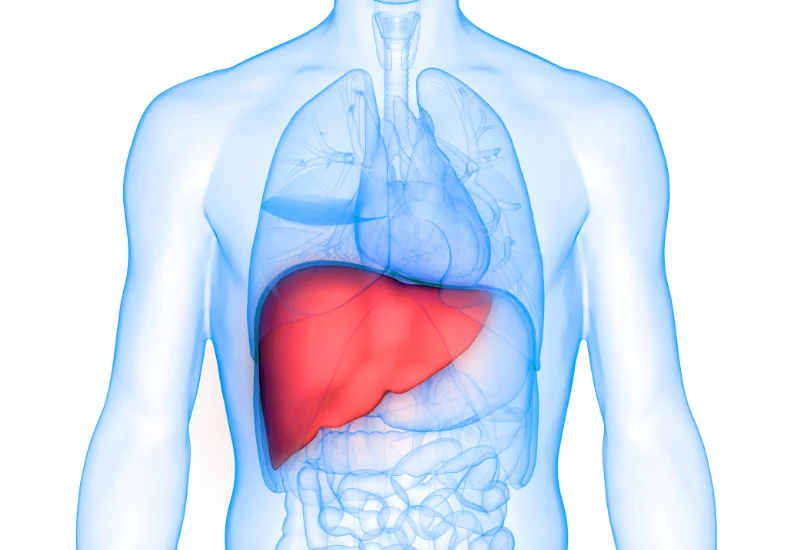Your liver sits underneath your rib cage towards the right. It is one of the largest and most essential organs in the human body. Think of it as a multi-functional organ - the liver is productive and destructive. Basically, the liver is seen as a metabolic organ that either produces components for metabolism (bile) or breaks down products (uric acid).
However, about 1 in 400 people living in the United States are said to be suffering from some form of liver disease. The most common manifestation of liver disease in the United States is cirrhosis (scarring) of the liver that is usually seen in an older demographic.
The liver is an organ susceptible to damage and dysfunction due to several causes, some internal and some external. Liver damage usually begins as liver disease, but eventually reaches liver failure which has a mortality rate between 60-90%.
General Symptoms of Liver Disease
It is important to understand that a physician can not ask for a liver function test as part of a routine examination. Liver function tests are dedicated and specific tests that are only undertaken in cases where liver damage or dysfunction is either suspected or confirmed.
However, not everyone with liver damage presents with corresponding signs to it. There are some people who do not develop general signs and symptoms or develop them to a negligible extent. Regardless, the progression of liver disease is often rapid and signs eventually do appear.
General signs and symptoms of liver disease include:
- Jaundice (yellowish discoloration of the skin and the eyes)
- Nausea
- Vomiting
- Dark urine
- Pale or black stools
- Easy bruising
- Itchy skin
- Swollen legs
- Loss of appetite
- Chronic fatigue
Causes of Liver Damage or Liver Failure
Infections
Infections of the liver used to be the leading cause of liver damage and eventual dysfunction several decades ago. This was usually due to poor regulations while transferring blood, sharing needles, etc.
The most commonly known infection of the liver is hepatitis - a viral infection. Other types include parasitic infections but bacterial infections are relatively rare.
Infections today are usually caused by the transfer of bodily fluids including blood or semen, contaminated water or food, and being in close contact with someone who is infected.
Hepatitis A - Usually acute (goes away in 6 months with minimal medication). Hepatitis A is spread through fecal-oral routes.
Hepatitis B - Also known as chronic hepatitis. Hepatitis B is caused by sharing contaminated needles or the transfer of bodily fluids.
Hepatitis C - Similar to hepatitis B, hepatitis C is a form of chronic hepatitis caused by the transfer of blood or semen (bodily fluids). There is currently no vaccine available for hepatitis C but you can be cured by hepatitis c medicine if you got this disease.
Hepatitis D and E - Less common variants.
Fatty Liver
As the name indicates, fatty liver or fatty liver disease is a condition seen with an excessive build-up of fatty acids in the liver. There are two types of this disease:
- Alcoholic fatty liver, and
- Non-alcoholic fatty liver
Physicians might recommend lifestyle modifications in earlier cases of fatty liver disease, but a liver transplant might be needed in severe cases.
Liver Cancer
Hepatocellular carcinoma is the term used to describe malignancy of the liver. The condition can either be primary (originating from the liver) or secondary (distant spread of cancer from any other site).
Liver cancer has several types:
- Cancer of the liver itself (hepatocellular carcinoma)
- Cancer of the bile duct
- Liver adenoma (not usually termed as cancer, but categorized as uncontrolled cell growth nonetheless)
When to Consult a Physician
If your physician suspects liver damage, he or she will ask for a liver function test. These are dedicated tests of the liver to either confirm the existence of a liver condition or the extent of it.
Our clinical experts continually monitor the health and medical content posted on CURA4U, and we update our blogs and articles when new information becomes available. Last reviewed by Dr.Saad Zia on April 2nd, 2023.












